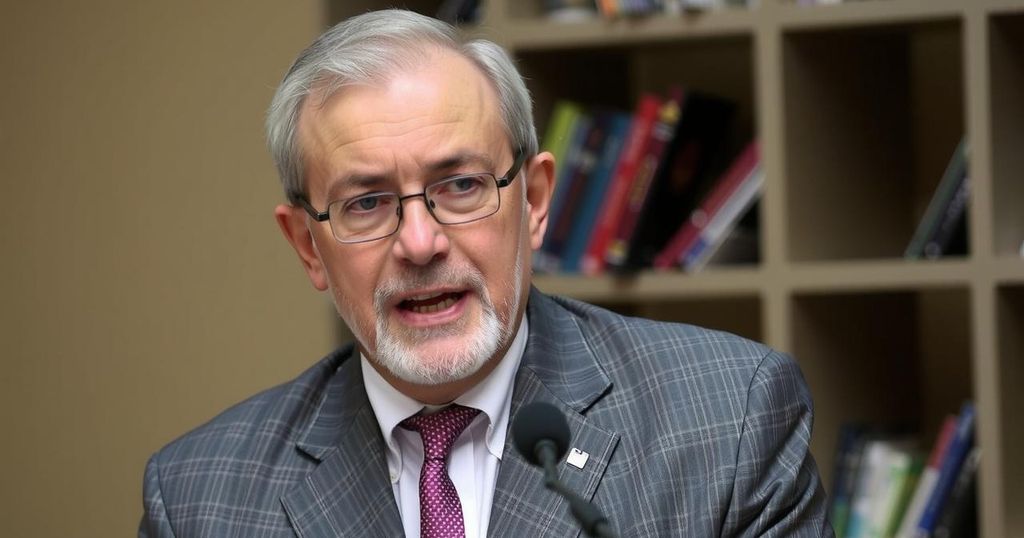Syria’s new leader, Ahmed al-Sharaa, stated in an interview that the electoral process could take four years, emphasizing the need to revise the constitution and drawing attention to the importance of relations with Iran and Russia. He expressed hope that the new U.S. administration would lift sanctions imposed on Syria under Bashar al-Assad, asserting that these should be removed automatically following Assad’s ousting.
In a recent interview with Al Arabiya, Syria’s newly appointed leader, Ahmed al-Sharaa, stated that the election process in the war-torn nation could span up to four years. He highlighted the necessity of revising the constitution, which he estimated could take an additional two to three years. Furthermore, al-Sharaa emphasized the importance of maintaining strong relations with key allies Russia and Iran, as well as expressing hope that the incoming administration of President-elect Donald Trump would lift sanctions imposed on Syria under the former regime of Bashar al-Assad. He asserted that following Assad’s ousting by his group, Hayat Tahrir al-Sham, the sanctions should be lifted automatically, reflecting a new political reality in Syria.
The recent political developments in Syria have come to the forefront following the removal of long-time ruler Bashar al-Assad by the Islamist group Hayat Tahrir al-Sham (HTS), which is considered a terrorist organization by many nations, including the U.S. Ahmed al-Sharaa’s leadership signifies a potential shift in governance as the country seeks to stabilize and restructure its political landscape after years of devastation from civil conflict. The lifting of sanctions, which were previously instituted in response to the Assad regime’s actions, remains a critical aspect for economic recovery and international relations going forward.
In conclusion, Ahmed al-Sharaa’s remarks during the interview underscore the complexities surrounding Syria’s path towards elections and recovery. The timeline for constitutional revisions and elections can indicate a profound transition in governance, while reiterating the need for international cooperation, particularly with the United States. Ultimately, the stance on sanctions will play a pivotal role in shaping Syria’s future political and economic landscape.
Original Source: www.scmp.com






